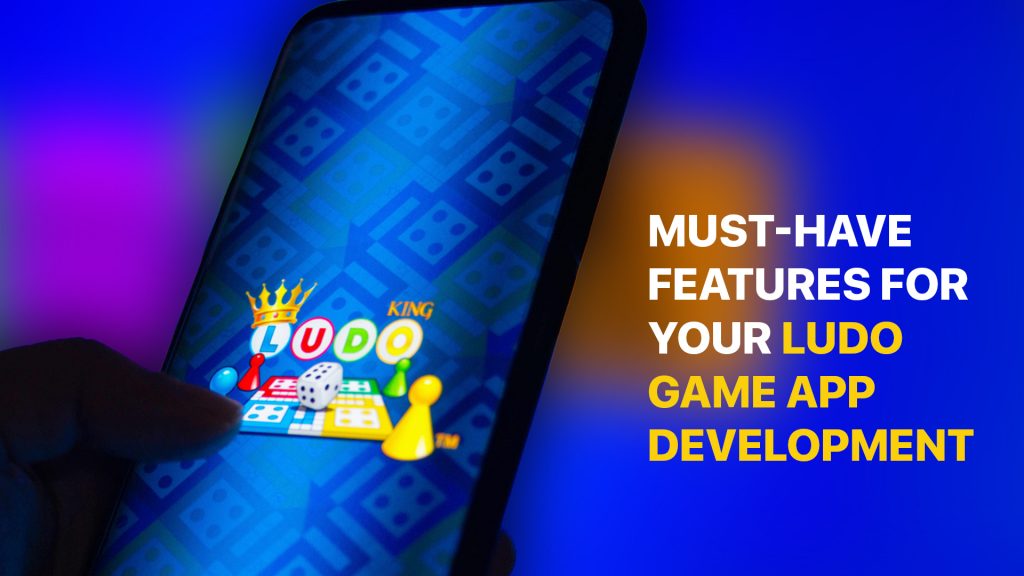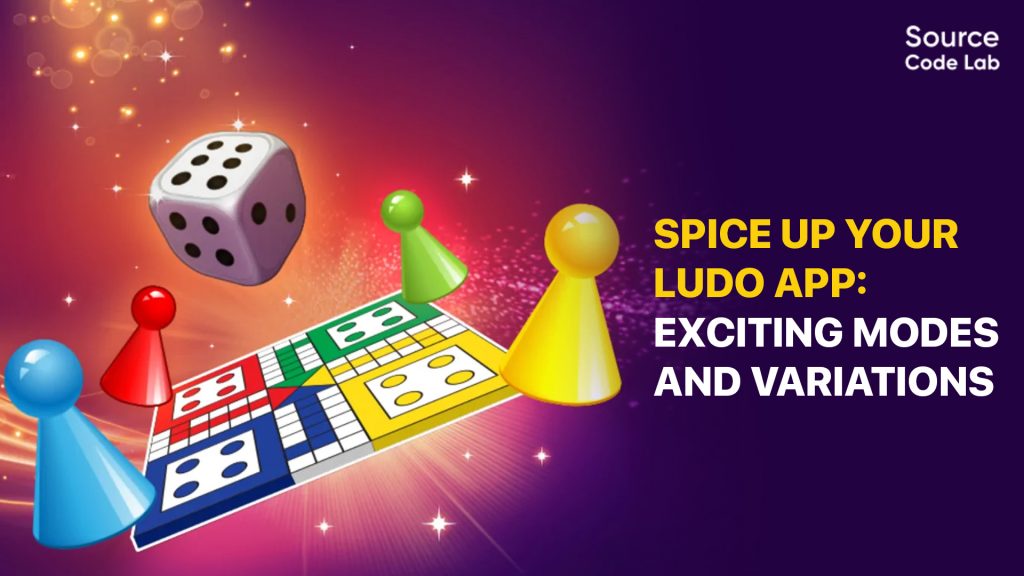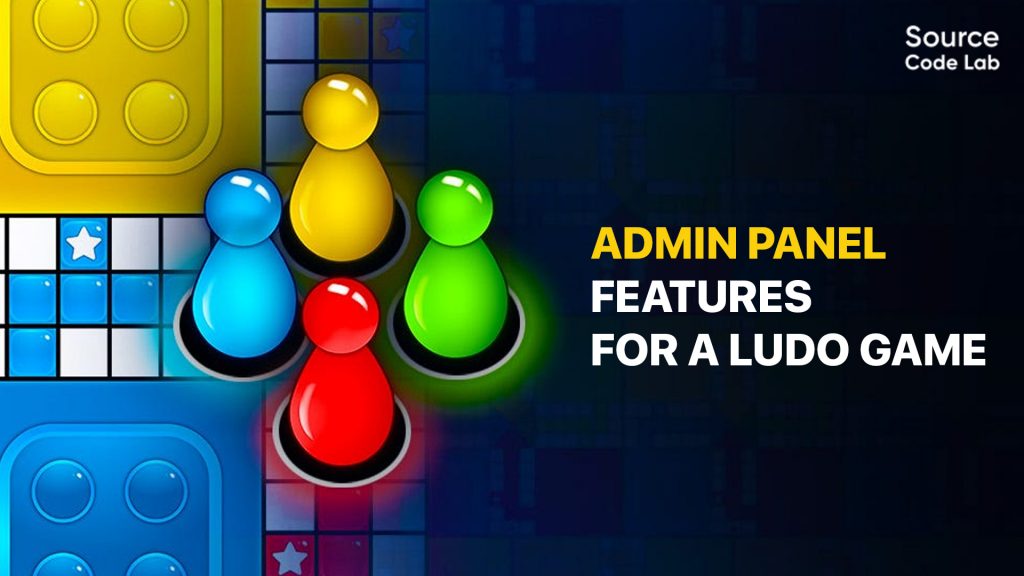Introduction
Remember those evenings spent playing Ludo with family, rolling the dice, and cheering on your pieces? Ludo has now transitioned to mobile phones and computers! The mobile gaming industry is thriving, with more people turning to their smartphones for fun and entertainment. One classic game that continues to be beloved is Ludo. Thanks to advances in technology, Ludo has found a new place on smartphones and computers, making it easier for everyone to enjoy. At Source Code Lab, we’re experts in game development, specializing in Ludo game development. In this article, we’ll cover the basics of creating a Ludo game app, from its traditional roots to its adaptation in the digital age.
Must-Have Features for Your Ludo Game App Development

In Ludo game development, incorporating key features is crucial to keep players engaged and returning. Here’s a breakdown of essential features to make your Ludo app stand out:
Daily Bonus:
Players love bonuses. Offer daily rewards like coins, power-ups, or new character designs to keep them logging in and excited for the next day
Play with Friends:
Ludo is more fun with friends. Allow players to simply ask their friends to join a game, providing a social component and making it an enjoyable way to connect.
Players Chat:
A chat part allows players to engage with their opponents, either for pleasant banter or guidance, which improves the gaming experience.
Auto Move:
An auto-move feature lets players move pieces automatically based on the dice roll, ensuring the game flows smoothly for those preferring a faster pace.
Online/Offline Mode:
Offer both online and offline modes so players can compete with friends online or play against AI opponents offline, providing flexibility.
Multi-Language Support:
Include multilingual support to make your game available to a global audience, allowing players to play Ludo in their preferred language.
Spice Up Your Ludo App: Exciting Modes and Variations

Ludo, the classic board game, has become a hit in the digital world! To make your Ludo game app stand out, consider these exciting modes and variations, offered through Source Code Lab, Ludo game development services:
Classic Mode:
Relive the nostalgia with traditional Ludo rules, where players race their tokens to the center.
Quick Mode:
For a quicker game, Quick Mode features a smaller board and fewer tokens, making the gameplay fast-paced and intense.
Battle Mode:
Battle Mode adds a strategic layer by allowing players to clash with each other’s tokens when landing on the same square.
Team Mode:
Team Mode introduces a cooperative twist, enabling friends to join forces and dominate the board together.
Online Multiplayer:
Challenge friends or random players online in real-time matches, bringing a competitive edge to your Ludo skills.
Tournament Mode:
Compete in multi-round tournaments to earn prizes and bragging rights.
Customization:
Personalize your game with customizable boards, tokens, and rules to create a unique Ludo experience.
Special Powers:
Unlock special skills and abilities for your tokens to enhance the gameplay experience.
By including these modes and variations using Ludo game creation services, you can design a Ludo game app that is engaging, amusing, and keeps players returning for more.
Admin Panel Features for a Ludo Game
Every great game app needs a powerful control center, and that’s where the admin panel comes in. Here’s a breakdown of key features that give you complete control over your Ludo game app development:
User Management:

Easily add, edit, or delete user accounts, and reset passwords to ensure a smooth user experience.
Game Management:
Create, edit, and oversee game rooms effortlessly. Closing a room is just as simple.
Game Monitoring:
Monitor ongoing games, view game statistics, and manage game progress when needed.
Content Management:
Add new game boards, themes, and other features to keep the game exciting and engaging for players.
Analytics and Reporting:
Use robust analytics and reporting tools to dive deep into user activity, game performance, and other key metrics.
Payment Management:
Easily manage in-app purchases, transactions, and user balances if your game involves financial transactions.
Chat and Communication Management:
Monitor chat activity, block users when necessary, and filter messages to maintain a positive and safe environment.
Security:
Set up strong authentication methods, monitor for suspicious activity, and enforce security policies to keep your game secure.
Notifications:
Send announcements, updates, and promotional messages directly to users through notifications.
Settings and Configuration:
Configure various game settings, like rules, scoring systems, and other parameters, to customize the experience for your players.
With a powerful admin panel at your fingertips, you’ll have complete control over every aspect of your Ludo game app development, ensuring a smooth and enjoyable experience for both you and your players.
Also Read: Top 10 Game Development Companies in 2024
A Step-by-Step Guide to Ludo Game App Development
So, you’ve got a fantastic idea for a Ludo game app! But how do you turn that idea into a reality? Here’s a roadmap to guide you through the exciting process of Ludo game app development:
1. Conceptualization and Planning
- Define your game’s objectives and target audience. Are you aiming for a quick, casual game or a strategic competition? Knowing your target audience is crucial.
- Create a visual plan, like a wireframe or prototype, to see how your app will look and function. This will make the development process smoother.
2. Choose the Development Platform
- Decide whether your Ludo game will be available on iOS, Android, or both. Consider your target audience and resources when making this choice.
- Different platforms use different languages. Swift is popular for iOS, while Java or Kotlin are common for Android. Choose the tools that best fit your development needs.
3. Design the User Interface (UI)
- Create a user interface (UI) that is both attractive and easy to use.
- Ensure the colors, graphics, and animations align with the classic Ludo theme to make it visually appealing and familiar to players.
4. Game Logic and Mechanics
- Program the game’s logic, including rules, dice rolling, and player movements.
- Implement multiplayer functionality so players can compete with friends or others.
5. Backend Development
- The backend system manages game sessions, player data, and matchmaking.
- Use technologies like Node.js, Django, or Firebase to build a robust backend.
6. Playing with Others
- Implement multiplayer functionality with sockets or APIs to allow players to connect and play in real-time.
- This lets players join or create game rooms and compete with friends or random opponents.
7. Monetization
- Offer optional in-app purchases like virtual goods, additional coins, or ad removal for an uninterrupted experience.
- Monetize your app with interstitial ads, banner ads, or rewarded video ads that players can watch for in-game rewards.
8. Testing and Quality Assurance (QA)
- Test your game rigorously to identify and fix any bugs, glitches, or performance issues.
- Test on different devices and screen sizes to ensure a smooth experience for all players.
9. Deployment and Distribution
- Submit your app to the Apple App Store and/or Google Play Store for review. After approval, your Ludo game will be available for the world to enjoy!
10. Post-Launch Support and Updates
- Regularly update your app with new features, bug fixes, and improvements based on user feedback to keep your players engaged and coming back for more.
Also Read: A Complete Guide on Poker Game Development

Conclusion
In conclusion, embarking on Ludo game app development can be a fulfilling endeavor, offering the opportunity to engage a wide player base and achieve substantial financial returns. By adhering to the steps detailed in this guide and remaining abreast of current trends and technologies, you can craft a thriving Ludo game app that distinguishes itself in the competitive landscape of mobile gaming.


